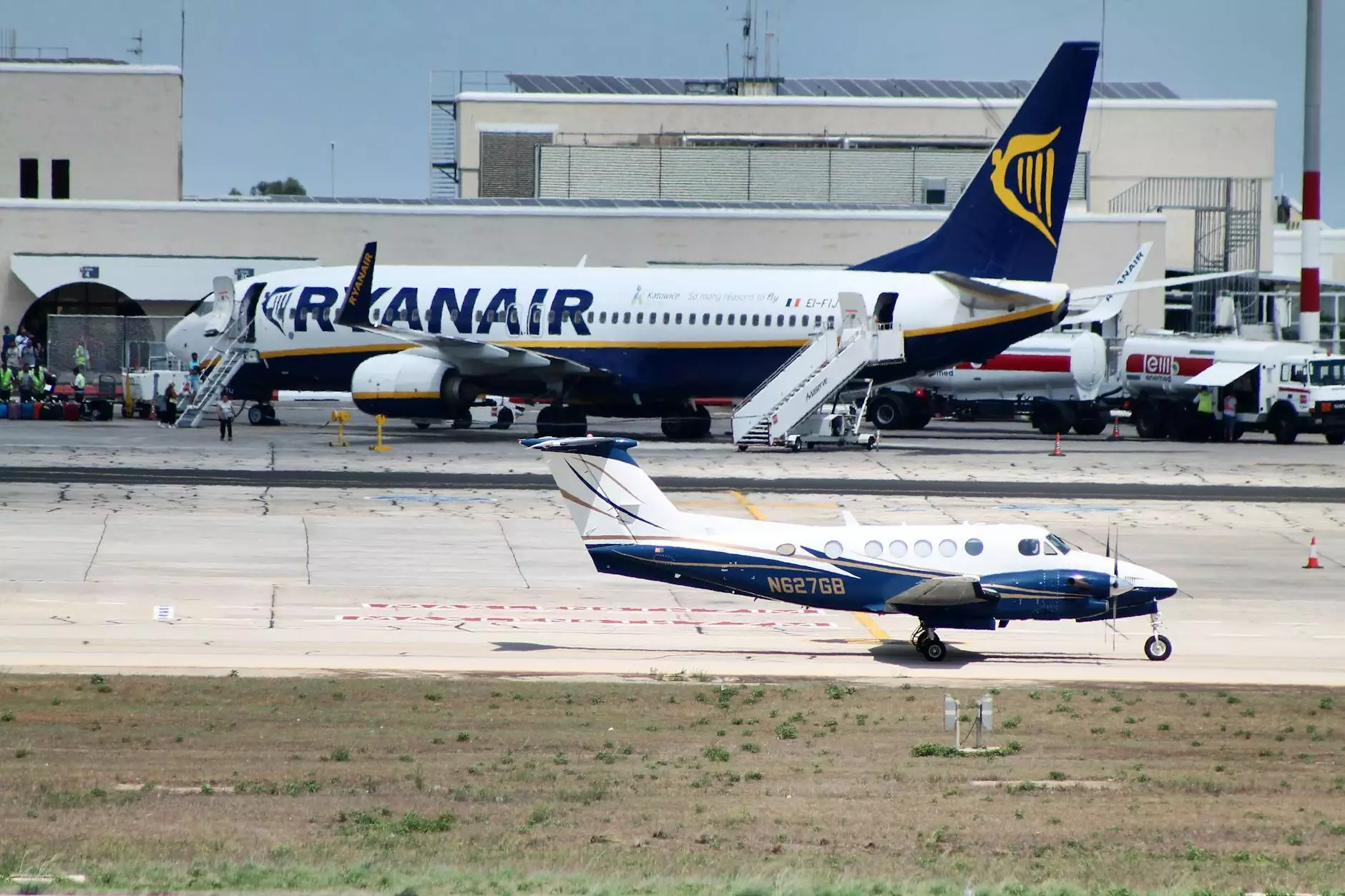Aviation Software Companies - Enhancing Efficiency in Airlines, Airport Terminals, and Aviation Services

The Role of Aviation Software Companies in the Industry
In the fast-paced and dynamic world of aviation, staying ahead of the competition requires an innovative approach. Aviation software companies, such as Awery.aero, play a crucial role in enhancing the efficiency and effectiveness of airlines, airport terminals, and aviation services. By providing cutting-edge software solutions tailored to the unique needs of the industry, these companies empower businesses to streamline their operations, improve safety measures, and optimize resource management.
Revolutionizing the Aviation Industry
Gone are the days when manual processes and paperwork dominated the aviation sector. With the advent of aviation software, the industry has witnessed a transformative revolution. Aviation software companies offer a wide range of solutions, from fleet management systems to crew scheduling software, enabling seamless coordination and communication between various stakeholders.
Benefits of Aviation Software
Implementing aviation software solutions from reputable companies like Awery.aero bring numerous advantages to the table. Let's explore some of the key benefits:
1. Improved Operational Efficiency
Aviation software streamlines and automates various operational processes, reducing the risk of errors caused by manual intervention. With real-time data and analytics at your fingertips, you can make data-driven decisions, optimize resource allocation, and enhance overall operational efficiency.
2. Enhanced Safety Measures
Safety is paramount in the aviation industry. Aviation software companies provide sophisticated safety management systems that help identify potential risks and mitigate them proactively. By centralizing safety-related data, airlines, airport terminals, and aviation services can systematically monitor and address safety concerns, fostering a culture of safety excellence.
3. Streamlined Maintenance Processes
Efficient maintenance and repair processes are crucial for the uninterrupted operation of aircraft and airport infrastructure. Aviation software offers robust maintenance management solutions that enable proactive planning, predictive maintenance, and streamlined repair workflows. This ensures minimal downtime and maximizes the availability of assets.
4. Optimized Resource Management
Aviation software provides comprehensive tools for managing and optimizing various resources, including crew scheduling, fuel consumption, and inventory control. By leveraging advanced algorithms and intelligent analytics, businesses can achieve cost savings, reduce waste, and maximize their operational capabilities.
5. Seamless Communication and Collaboration
In the aviation industry, effective communication and collaboration are crucial for success. Aviation software solutions offer integrated communication platforms that facilitate seamless collaboration between departments, suppliers, and customers. Real-time data sharing, task assignment features, and instant messaging capabilities enhance operational coordination and enable swift decision-making.
The Future of Aviation Software
As technology continues to evolve, the future of aviation software holds great promise. Aviation software companies are constantly innovating and adapting to the changing needs of the industry. Here are some trends that are shaping the future of aviation software:
1. Artificial Intelligence (AI) and Machine Learning
AI and machine learning algorithms are revolutionizing the way aviation software operates. These technologies enable software systems to learn from vast amounts of data, optimize processes, and make accurate predictions. From predictive maintenance to demand forecasting, AI-driven aviation software is set to transform the industry.
2. Blockchain for Enhanced Security
Blockchain technology has the potential to revolutionize security in the aviation industry. By providing a decentralized and immutable ledger, blockchain ensures that critical information is securely stored and shared among authorized parties. This technology can enhance trust, prevent fraud, and streamline transactions within the aviation ecosystem.
3. Internet of Things (IoT) Integration
The Internet of Things (IoT) is connecting devices and systems like never before. In aviation, IoT-enabled sensors and devices can capture real-time data on aircraft performance, passenger preferences, and operational metrics. Aviation software leverages this data to drive better decision-making, improve passenger experience, and optimize resource utilization.
Conclusion
Aviation software companies like Awery.aero are reshaping the aviation industry by providing innovative solutions that enhance efficiency, safety, and collaboration. By leveraging aviation software, airlines, airport terminals, and aviation services can streamline their operations, optimally manage resources, and achieve sustainable growth.
With the ongoing advancements in technology and the relentless pursuit of excellence, aviation software companies are at the forefront of shaping the future of the industry. Embracing these cutting-edge solutions is crucial for businesses to stay ahead of the competition and thrive in the ever-evolving aviation landscape.



